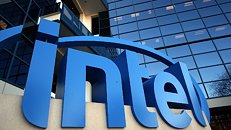Raevenlord
News Editor
- Joined
- Aug 12, 2016
- Messages
- 3,755 (1.19/day)
- Location
- Portugal
| System Name | The Ryzening |
|---|---|
| Processor | AMD Ryzen 9 5900X |
| Motherboard | MSI X570 MAG TOMAHAWK |
| Cooling | Lian Li Galahad 360mm AIO |
| Memory | 32 GB G.Skill Trident Z F4-3733 (4x 8 GB) |
| Video Card(s) | Gigabyte RTX 3070 Ti |
| Storage | Boot: Transcend MTE220S 2TB, Kintson A2000 1TB, Seagate Firewolf Pro 14 TB |
| Display(s) | Acer Nitro VG270UP (1440p 144 Hz IPS) |
| Case | Lian Li O11DX Dynamic White |
| Audio Device(s) | iFi Audio Zen DAC |
| Power Supply | Seasonic Focus+ 750 W |
| Mouse | Cooler Master Masterkeys Lite L |
| Keyboard | Cooler Master Masterkeys Lite L |
| Software | Windows 10 x64 |
The news and details on Intel's most recent chip flaw have been coming in almost faster than news outlets can put them out, and it just seems that the company is going through a phase where news are seldom good. New information has come to light that paint Intel CEO's Brian Krzanich's sale of $24M worth of stocks in November 24th in a negative spotlight, euphemisms be allowed. We (meaning, this editor) previously dismissed the share sale as a pre-planned event that didn't show any kind of shady wrongdoing in the face of news breaking out regarding Intel's VM security flaw. However, it seems as if it pays off to be negative rather than positive in the world at large, and the skeptic in me is saying "serves you right".


Apparently, Intel had known well in advance of the vulnerability's existence - sources peg the news has being broken to Intel by Google itself, who informed the blue giant as early as June 2017 regarding the existence of a security flaw on its chips' design. It's understandable the company might want to keep the bug's existence - and details - under wraps, to allow development of a solution before malicious attackers could take advantage of it.
However, what isn't understandable is how Intel's CEO set the stock sale's date to November 24th in October - at least four months after the company had taken wind of the issue's existence. Some interesting details on the sale now also make sense - Intel CEO Brian Krzanich sold the maximum amount of shares in the company he could, keeping only the mandatory 250,000 minimum shares that come with his position at Intel. In total, Brian Krzanich's sold shares totaled 245,743 shares of stock he owned outright, and 644,135 shares he got from exercising his options. So, the man sold around 80% of his Intel shares while the company (and he himself, surely) knew the flaw would become public knowledge soon enough. There's not even a vestige of shadiness in this whole issue, for sure.
View at TechPowerUp Main Site


Apparently, Intel had known well in advance of the vulnerability's existence - sources peg the news has being broken to Intel by Google itself, who informed the blue giant as early as June 2017 regarding the existence of a security flaw on its chips' design. It's understandable the company might want to keep the bug's existence - and details - under wraps, to allow development of a solution before malicious attackers could take advantage of it.
However, what isn't understandable is how Intel's CEO set the stock sale's date to November 24th in October - at least four months after the company had taken wind of the issue's existence. Some interesting details on the sale now also make sense - Intel CEO Brian Krzanich sold the maximum amount of shares in the company he could, keeping only the mandatory 250,000 minimum shares that come with his position at Intel. In total, Brian Krzanich's sold shares totaled 245,743 shares of stock he owned outright, and 644,135 shares he got from exercising his options. So, the man sold around 80% of his Intel shares while the company (and he himself, surely) knew the flaw would become public knowledge soon enough. There's not even a vestige of shadiness in this whole issue, for sure.
View at TechPowerUp Main Site



 This is about stock sales, not the patch/MeltdownSpectre stuff
This is about stock sales, not the patch/MeltdownSpectre stuff
